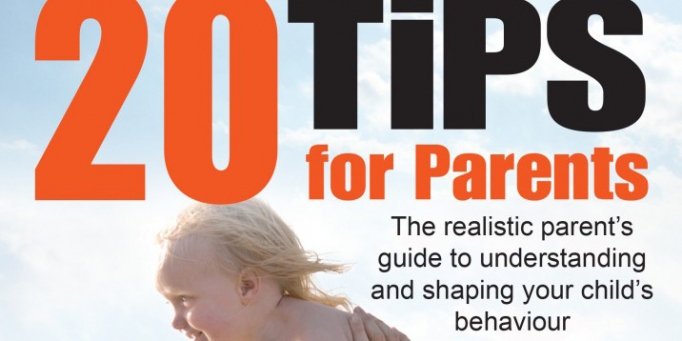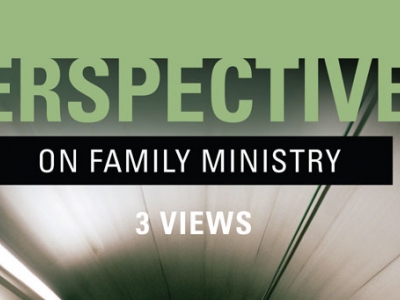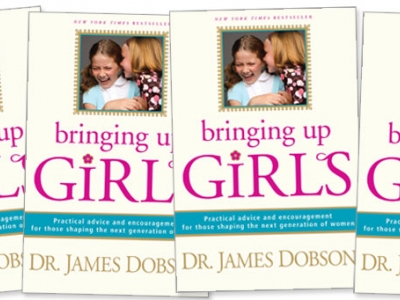
Review: 20 Tips for Parents by Professor Kim Oates
Read this book and learn how to be a firm but loving parent.
20 Tips for Parents: The realistic parent’s guide to understanding and shaping your child’s behaviour
by Professor Kim Oates, Finch Publishing, Sydney, 2014.
When we open up a parenting book, we make ourselves vulnerable. We begin cautiously, fearing that what we read might confirm our suspicions that we are fundamentally inadequate for the high calling of parenthood.
However, when I opened up 20 Tips for Parents, my fears were quickly relieved. Professor Kim Oates understands the pressures on modern parents – he balances advice with reassurance, and high ideals with a healthy dose of realism. Oates speaks with the voice of an experienced paediatrician, applying recent research to real life examples. In his introduction, Oates writes:
“Children need love, clear boundaries, consistent rules, positive stimulation, nurturing and respect for their own feelings. But if you don’t manage to supply these needs 100 per cent of the time, your children won’t be psychologically scarred for life … Early childhood is important, but because they have some resilience, children learn from experiences, bounce back, adapt and forgive.”
Professor Oates begins by addressing common parenting myths. On the one hand, he warns against being too tough on children – being authoritarian without showing love and understanding. But on the other hand, he warns against not being tough enough – being overprotective, overindulgent, and slack with boundaries. Oates encourages parents to find the middle ground.
As the book’s subtitle suggests, the 20 tips which follow are realistic and help parents to achieve a balance between understanding their children and shaping their behaviour. Each chapter is short enough to read in one sitting and the real life examples make it easy to understand. 20 Tips for Parents gives broad principles which could be applied to most family situations.
Oates’ first tip is revolutionary: you only need to be a good-enough parent. While 20 Tips for Parents is not a Christian book, its approach is entirely consistent with our worldview. Christians struggle with perfectionism too; but our imperfections should not come as a shock. Instead of trying to maintain a façade of perfection, we can be honest about our sin and our need for grace. We trust that God has our children’s future in his hands – he can work all things for their good, even our parenting mistakes.
Oates’ second tip also resonates with a Christian worldview: love your children unconditionally. This is the kind of love that God has shown us: “But God demonstrates his own love for us in this: While we were still sinners, Christ died for us.” (Romans 5:8). In Tips 7 and 11, Oates further explains how to love your child and respect their feelings, even when you disapprove of their behaviour. While I generally agreed with what Oates said on this topic, I would have appreciated a more thorough definition of love.
A number of tips focus on understanding your child and their needs. Tips 4, 8, and 9 provide useful information about different developmental stages, from birth to the teenage years, so that parents can set realistic expectations. Tip 6 sets out to inform parents about three common personality types, and how to respond to each. However, I found this classification too simplistic – Oates himself admits that only 65 per cent of children fit into these three categories.
Parenting is not just about understanding your child, but also shaping their behaviour. In Tip 5, Oates describes the ideal parenting style as “authoritative” – balancing kindness with firmness. This sits well with the Bible’s view of parents. “Children, obey your parents in everything” is quickly followed by “Fathers, do not embitter your children” (Colossians 3:20-21). The Bible expects parents to exercise authority, but with sacrificial, Christ-like love.
Tips 15 and 16 bring us to the issue of discipline. Oates begins with an excellent description of discipline – it is not just about punishment, but about guiding our children towards appropriate behaviour by modelling, teaching, encouraging, acknowledging good behaviour, and setting clear and realistic standards.
Oates counts physical punishment as a form of discipline that does not work, and one that has negative long-term effects on children. This conclusion will not please everyone. Some Christians believe that God’s Word requires parents to use physical discipline; others believe that the Bible permits it; while a third group follows the lead of experts such as Professor Oates.
According to Oates, authoritative parents also “let their children go” at the right rate. So tips 13 and 19 discuss how to gradually let children take responsibility for themselves, their emotions, and their problems.
Professor Oates also gives some good advice about the issues of “screen time”, praise, conflict between siblings, and the role of play.
In conclusion, I would highly recommend this book to anyone who is raising children. It gives plenty of useful information and advice, but without making parents feel guilty for their mistakes. Professor Oates gives parents the encouragement and skills they need to find a middle way – to be parents who are kind AND firm.
Harriet Connor lives on the Central Coast of NSW with her husband and three sons. She loves thinking hard about how the Bible shapes our approach to parenting and is just about to finish a book on that topic.
For more articles from Growing Faith, subscribe to our monthly e-newsletter.
To hear about the latest books and resources from Youthworks Media, subscribe here.







